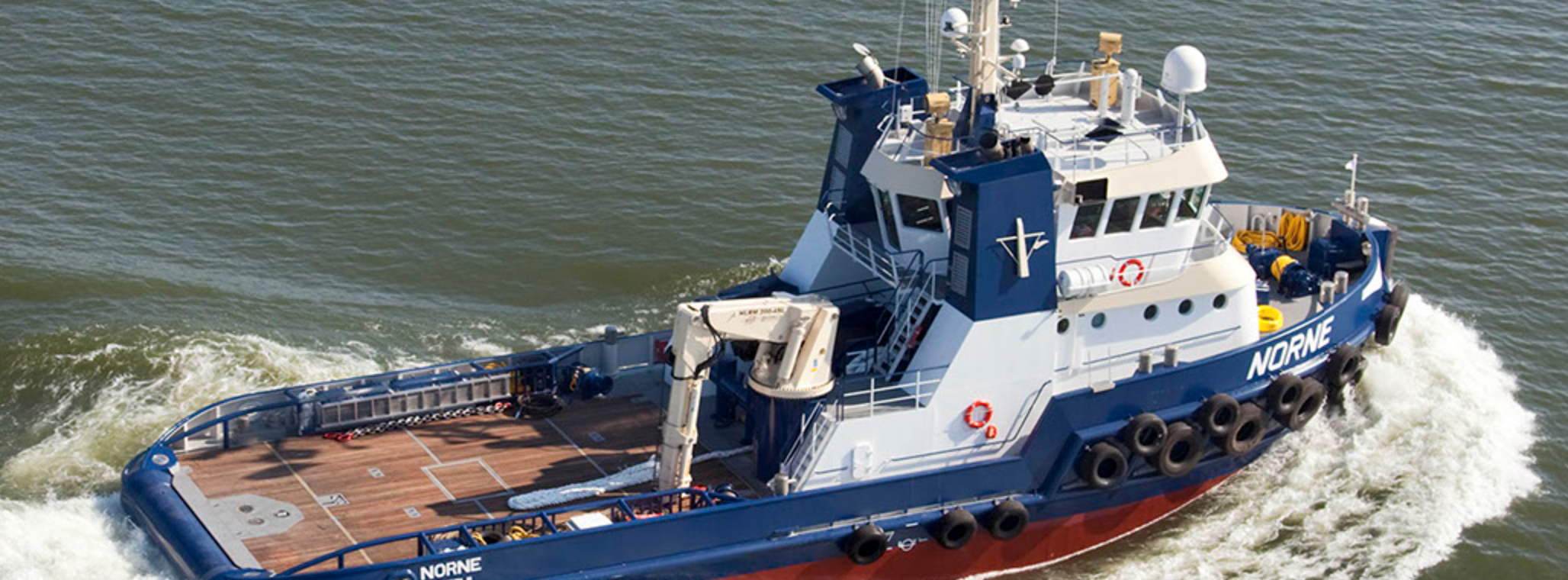A Dutch tugboat working on the Vineyard Wind project off southern New England is an example of why Congress should pass legislation to mandate crewing requirements for U.S. offshore wind work, the Offshore Marine Service Association said Thursday.
The 111’x 36’x 13’ 580 dwt Netherlands-flagged tug Norne has been used to reposition anchors on the Vineyard Wind lease area, according to OMSA, which is lobbying hard for passage of the American Offshore Worker Fairness Act.
“Offshore wind developers were just handed a multi-billion dollar tax credit from U.S. taxpayers and Vineyard Wind turns around and gives those dollars to Dutch vessel owners and foreign mariners. American offshore energy should mean American jobs and opportunity, unfortunately once again we are seeing offshore developers knowingly skirt American law to save a (taxpayer supported) buck at the expense of American jobs,” said OMSA president Aaron Smith in a prepared statement.
“Vineyard Wind has been caught in a lie after telling Congress that they would use U.S. vessels and only use foreign vessels in exceedingly rare circumstances,” said Smith. “There are approximately 2,000 U.S. tugs with American crews available today, but instead Vineyard Wind hired the Dutch-flagged vessel Norne for a minor, everyday role while American mariners sit idly by. This is just one example of offshore developers taking advantage of an unfair loophole allowing foreign flagged vessels to hire crews from low-wage, often adversarial nations, undermining American job and energy creation goals.”
Through a spokesman Vineyard Wind disputed OMSA’s characterization of the Norne’s work.
"These claims are simply not true. The vessel mentioned is part of an integrated unit that’s worked in tandem with the Cable Enterprise for a decade and is designed specifically for the highly technical nature of cable installation,” according to the spokesman. “Furthermore, there is a U.S. flagged tug, the Nicole Foss, actively working in service to the project with these vessels.”
In March 2021, Vineyard Wind announced that DEME Offshore US would team with Foss Maritime to construct the 800-megawatt Vineyard Wind 1 offshore energy project, using the “feeder” concept of a foreign-flag wind turbine installation vessel (WTIV) supplied onsite by Jones Act-compliant U.S. vessels.
Foss, a longtime U.S. maritime service contractor with union labor, is providing the feeder vessels and crews. That’s proven to be a a big political selling point for offshore wind in Northeast states, where organized labor has lots of clout with pro-wind energy governors and lawmakers. The Nicole Foss will be based at the New Bedford Foss Maritime Terminal, planned to open at the Massachusetts South Shore port in March 2023.
The American Offshore Worker Fairness Act “would require foreign vessels to utilize either U.S. mariners or citizens of the vessel’s home country while operating in offshore energy activities in U.S. waters,” according to OMSA. “This would change the current practice where foreign vessels utilize crew members from low-wage countries at day rates no American would or should accept. This unfair practice gives foreign vessels a competitive advantage over U.S. vessels and takes jobs away from American mariners.”
The legislation still making its way through Congress is hotly disputed in the offshore wind industry. Renewable energy advocates warn it will hobble U.S. offshore wind development still in its early stages, when some foreign flag vessels are needed for specialized tasks. Established U.S. offshore service providers and labor groups have supported the measure as closing what they call a loophole in U.S. maritime law and regulation.
Among its proposed measures, the legislation would require that foreign mariners working in the U.S. offshore energy markets get Transportation Worker Identification Credential (TWIC) cards, as are U.S. mariners. Visas issued for working on foreign flag vessels would be limited according to the specific number of crew required for tasks, and foreign vessels operating in U.S offshore energy markets would be subject to annual Coast Guard inspections.
Built in 2011, the Norne is a twin-screw anchor handling tug, powered by two Mitsubishi S12U-MPTK engines rated at 2,700 hp at 1,016 rpm, according to builders Kooiman Marine Group. On Thursday afternoon the tug was reported as moored near Providence, R.I., according to AIS data published by Marine Traffic.




